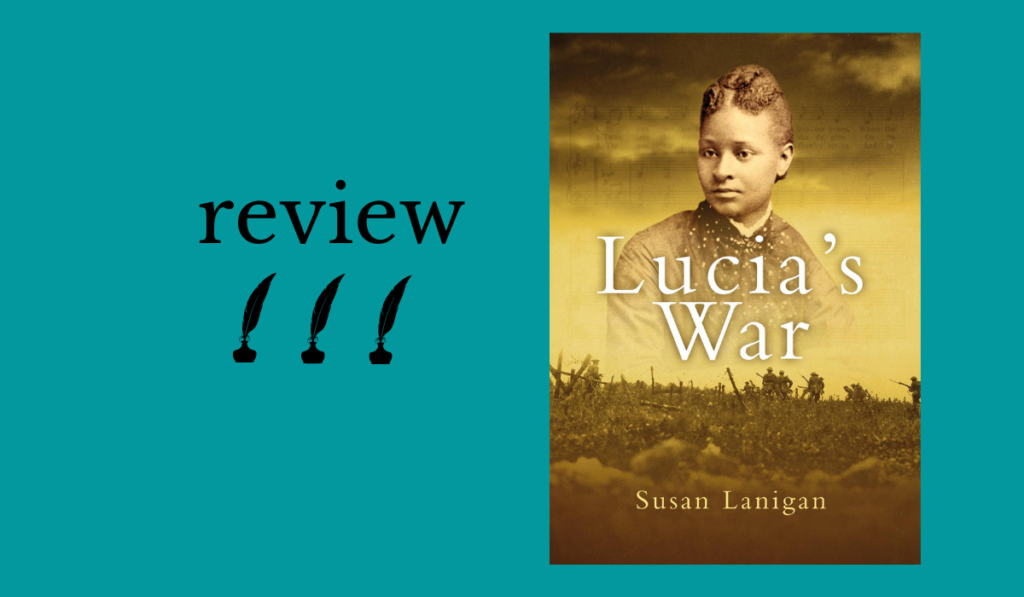
by Catherine Murphy
It’s a wonderful thing when the cover art for a book leads the reader so perfectly into the story as this design for Lucia’s War. Before even opening the book there is music, war, and Lucia herself. I love when a character beams from the pages. Lucia is strong, independent, difficult, stubborn, brave and gifted, and she has had to be all those things to get through her life.
The story opens midway through the last century but is mostly set around the First World War. It is narrated by Lucia, before what was scheduled to be her final performance as an opera singer, in an interview with a music critic. Lucia takes us through the years, looking back over her experiences and the decisions she made—and how they have formed her, in war, love, loss and, of course, opera.
As the story unfolds, Lucia reads with strength and determination because she has to fight on every side not just to make her dreams come true but in every part of her life, and her sadness and heartbreak ring true. She has a talent for singing and also a steely determination to make it, whatever happens.
In places I found the use of the Jamaican dialect a little awkward but Susan Lanigan is clearly comfortable writing in this period of history; the research is evident, the detail consistent throughout and the story is written with a great deal of love for her characters, both the lovable and the wicked. The medical research shines in particular and where Lucia talks about nursing and the care of others, and the terrible ravages of the war, the characters really come to life. But it is in Lucia’s singing that the reader is taken to her heart.
The story moves forward and backward in time through the weaving of the plot. Occasional bites of humour pick light between the terror of the times and without giving away any spoilers, the ending really surprised me.
I wasn’t completely sold on little things, like the appearance of Yeats, but this is a small complaint; the real guts of the piece is the great loss Lucia has been through, and the devastation of war. The battles rage behind the scenes even when the action is elsewhere.
“The answer is war. War crazed me. War is in my blood and veins, more potent than proof rum, sweeter than red wine, turning my head, making time short.”
Racism is an extremely painful part of the story; a black woman has more struggles to deal with than the white characters can possibly comprehend. Classical music and opera in particular have long been whitewashed, and with the erasing of these stories, so much is lost. The history taught in schools is blinkered and there must be layers of unheard records; the same war may be fought but from very different places. Lucia is fighting many wars.
The book moves with a very clear sense of place. The settings are powerfully drawn and the details deftly bring the plot through London, Jamaica, France, Glasgow, each one holding their own with some wonderful background descriptions. Music is another consistent strand but the root is really motherhood, a thread of barbed wire running through the story.
Although we hear in first person through Lucia’s words, the secondary characters are great, Eva and Arthur in particular. Eva is all kinds of messed up. I loved Arthur’s advice, which to me almost encapsulates the book.
“You cannot let future jewels be stolen from you by past sadness.”
There are terrible things committed by some of the characters but Susan Lanigan always gives reasons, if not justifications. In the past, authors have sometimes been discouraged from writing female characters who display unlikable traits, leading to a number of historical works on the shelves where the characters are less believable than they might be, prone to the ‘fluffy’ or pathetic. Lucia is neither of these, she’s got guts and heart and soul and she lives through the pages of this book.

Catherine Murphy @scribblingink1











